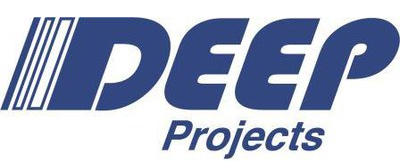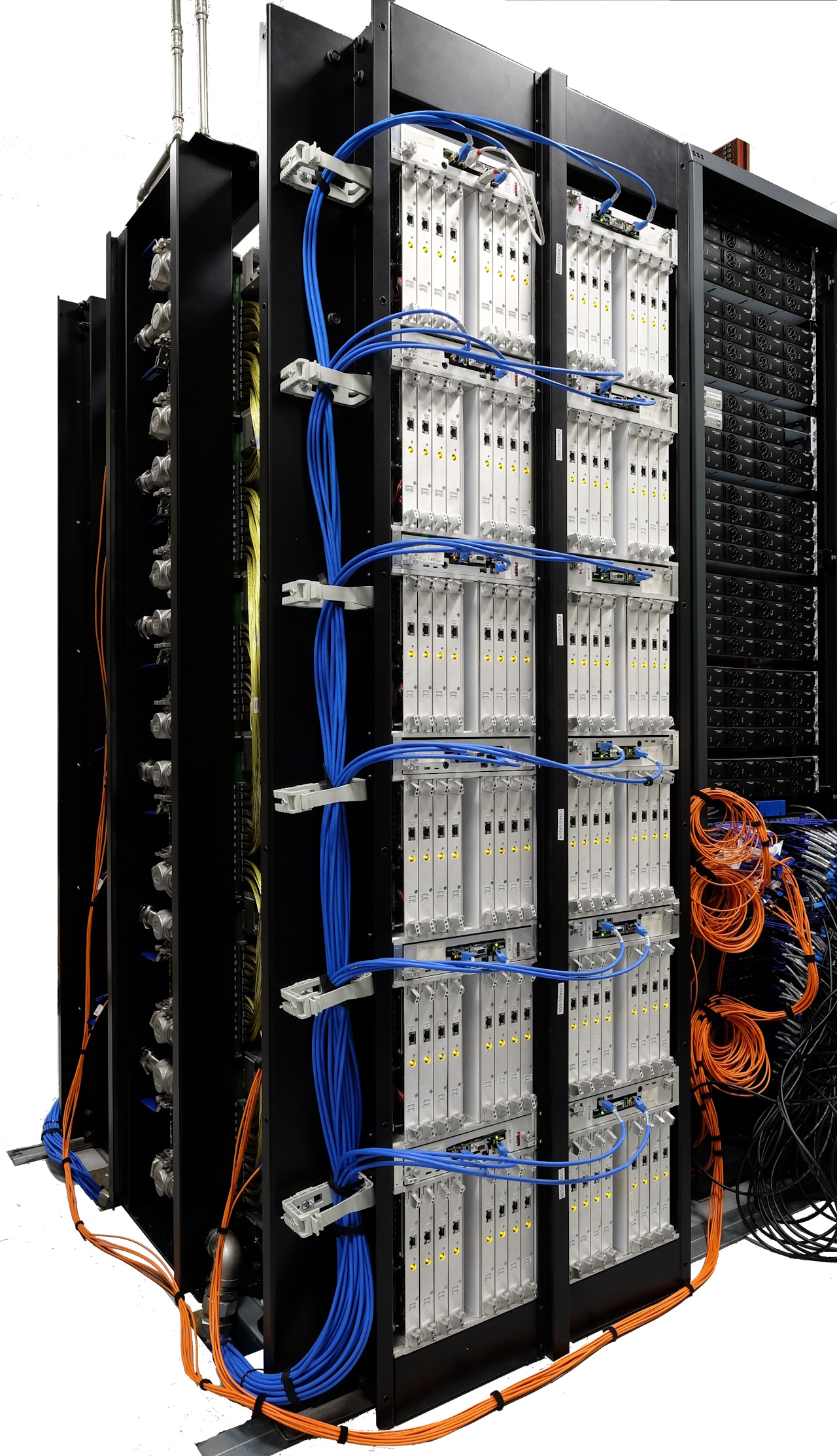
The DEEP project designed and built the first “Cluster/Booster”-prototype, composed of a Eurotech Aurora HPC Cluster with 128 dual-processor Intel® Xeon® nodes interconnected with QDR (32 Gbit/s) InfiniBand, and an innovative “Booster” combining 384 accelerator cards (Intel® Xeon PhiTM 7120X (“Knights Corner”) and using a European 3D torus EXTOLL interconnect implemented in FPGAs. 24 “Booster Interface” nodes control all the accelerators and act as gateways to the Cluster InfiniBand network. The system had a peak performance 500 plus 45 TFlop/s for the Booster and Cluster, respectively. The prototype had a power consumption of 200KW and used warm water cooling to minimise cooling overhead and enable tight packaging. The photo to the right shows the Booster system, and the system architecture is illustrated below.
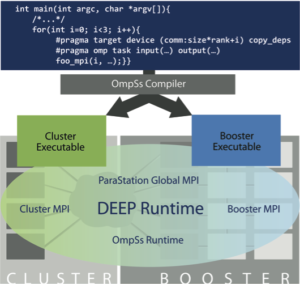
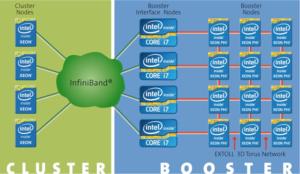
Six complex, real-world HPC applications from the fields of brain simulation, climate simulation , computational fluid dynamics , high temperature superconductivity , seismic imaging and space weather simulation , provided co-design input for the DEEP protype and its software stack, which relied on OmpSs (an extended research implementation of OpenMP) and ParaStation Global MPI. The OmpSs compiler created two binaries and supported compute offload to the Booster via the OpenMP target clause, while ParaStation Global MPI provided transparent MPI communication between all nodes of the prototype.
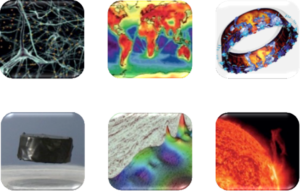
The DEEP project started on December 1, 2011 and came to a successful conclusion on May 31, 2015. The consortium consisted of sixteen partners from eight European countries, with Forschungszentrum Jülich acting as the coordinator. The project budget was 18.5M €, and the European Union contribution was 8.3 M€.
The DEEP project received funding from the European Community’s Seventh Framework Programme under grant agreement No. 287530.
Project stats
- Project Acronym: DEEP (Dynamical Exascale Entry Platform)
- Contract n° ICT-287530 Project Type IP/STREP
- Start Date: 01/12/2011
- Duration: 45 months
- Total Budget: 18,500,000 €
DEEP project partners
- Barcelona Supercomputing Center
- CERFACS
- CGG
- CINECA
- Ecole Polytechnique Fédérale de Lausanne (EPFL)
- Eurotech
- Fraunhofer Institute for Industrial Mathematics (ITWM)
- German Research School (GRS)
- Forschungszentrum Jülich (FZJ)
- KU Leuven
- Leibniz Supercomputing Centre (LRZ)
- ParTec AG
- The Cyprus Institute (CYI)
- University of Heidelberg
